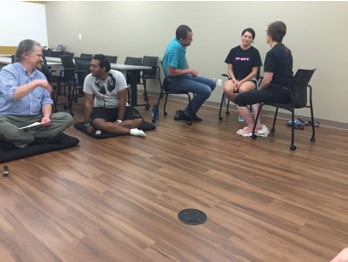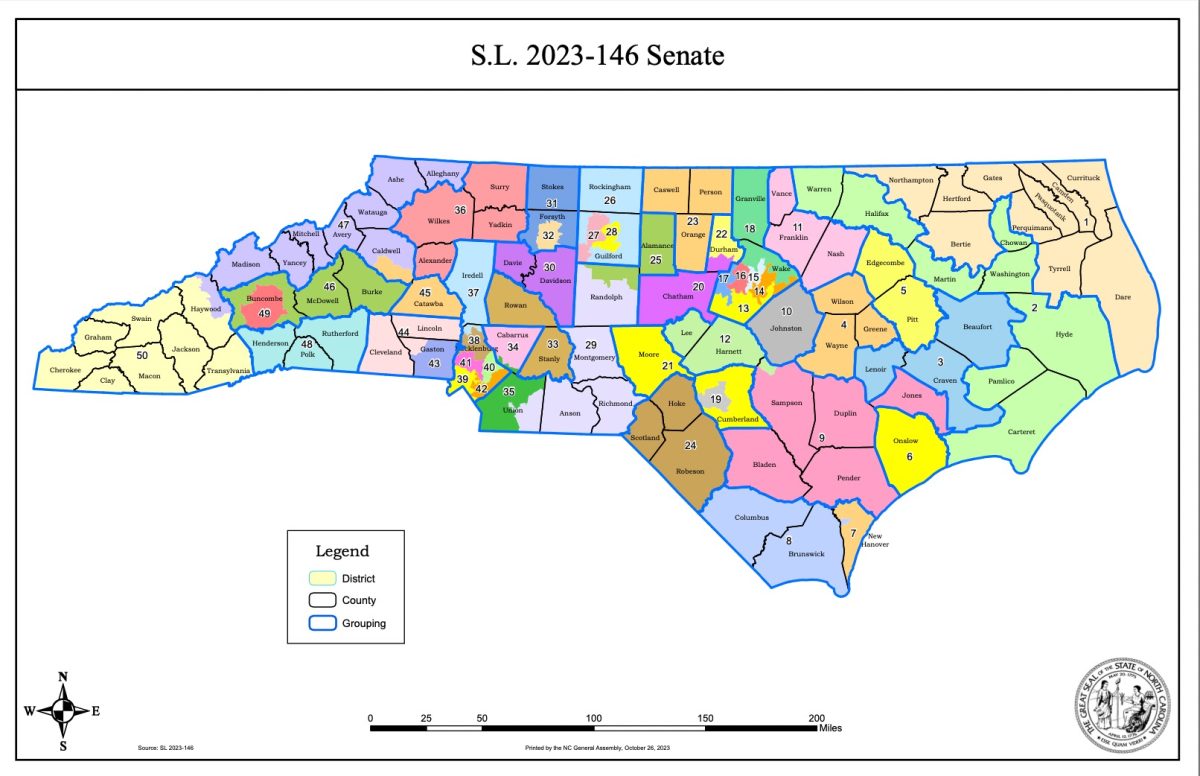The ring of three bells signaled the start of a 20 minute meditation.
Students who attended the MindfulWake meditation session led by Chaplain Tim Auman on Monday, Sept. 25 sat throughout the quiet room, on mats on the floor or in chairs. Before beginning, Chaplain Auman briefly discussed with the group the goals of this meeting and the importance of mindfulness in daily practices as a combatant to everyday stresses which can cause irritability, anxiety, sleeping issues and eating problems.
It’s a common misconception that to meditate is to think about nothing at all. Instead, MindfulWake’s sessions encourage students to focus on their breathing and purposeful thinking when distractions vie for their attention.
“It was really relaxing and nice to take an hour out of the day and not think about classes or emails or your phone,” said senior Chris Caswell.
The Chaplain’s Office and THRIVE have launched the MindfulWake program, a new initiative which will allow students, staff and faculty to take a more active role in their health and mental wellbeing.
“Mindfulness is the ancient practice of cultivating nonjudgmental awareness in day-to-day life,” Auman said. “We believe that being fully awake in each moment leads to peace and well-being.”
The program is developed in response to a perceived increasing prevalence of stress in the daily lives of students, staff and faculty, and offers several meditation and mindfulness classes throughout the week, ranging in focus and duration.
Each week meditation is offered on Mondays from 4:30-5:30 p.m. and Wednesdays from 12-12:30 p.m. at the Wellbeing Center in Reynolds Gym.
MindfulWake also offers mindfulness-based stress reduction trial classes with a different theme each week. “Awareness of Eating” will be offered on Oct. 5 from 3:00-4:00 pm in the Wellbeing Center of Reynolds Gym.
“I thought it was going to be something different than it actually was,” said Eva Little, a Wake Forest graduate student. “This class is a very introductory, beginner class. [Auman] is very good about putting you through the very basic concepts of meditation and not restricting too much what you are allowed to do or think about during the session. If there is a weak spot in the program, it is that they could explain about what the restrictions are within your practice; there’s a certain way to do things, and a lot of time I found myself doing things just because I thought that’s what I was supposed to be doing in a meditation class.”





















